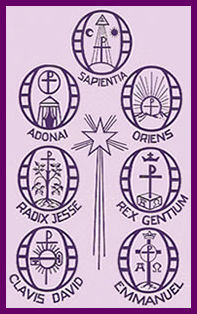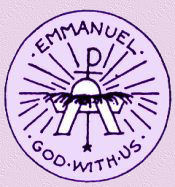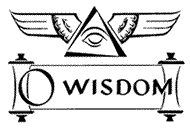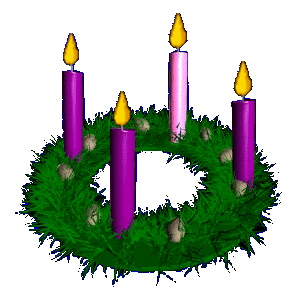
The Great O Antiphons
December 17: "O Sapientia"
December 17: "O Sapientia"
These Great "O Antiphons" at the Magnificat were first used by the Church in the 8th and 9th centuries.
They are said in order, based on various titles for the Christ and are scripturally-based short prayers for the 17th to the 23rd of December.
In these "O Antiphons" the Church expresses her deep longing for the coming of the Messiah.
Christ, Wisdom and Creator of the world
(See Proverbs 1:20; 8; 9 and I Corinthians 1:30) | |
O Sapientia,
quae ex ore Altissimi prodiisti,
attingens a fine usque ad finem fortiter,
suaviterque disponens omnia:
veni ad docendum nos viam prudentiae.
|
O Wisdom,
who proceeds from the mouth of the Most High,
reaching out mightily from end to end,
and sweetly arranging all things:
come to teach us the way of prudence.
|
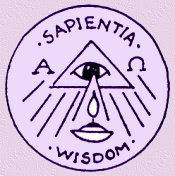 O WISDOM
O WISDOMDecember 17
Symbols: All-Seeing Eye and the Lamp
Come, and teach us the way of prudence.
O Wisdom, who came from the mouth of the Most High, reaching from end to end and ordering all things mightily and sweetly, Come, and teach us the way of prudence.
O Sapientia, quae ex ore Altissimi prodiisti, attingens a fine usque ad finem fortiter, suaviterque disponens omnia: veni ad docendum nos viam prudentiae.
The "all-seeing eye" represents the all-knowing and ever-present God. During the late Renaissance, the eye was pictured in a triangle with rays of light to represent the infinite holiness of the Trinity. The lamp is a symbol of wisdom taken from the parable of the wise and foolish virgins in Matthew 25.
Recommended Readings: Proverbs 8:1-12

